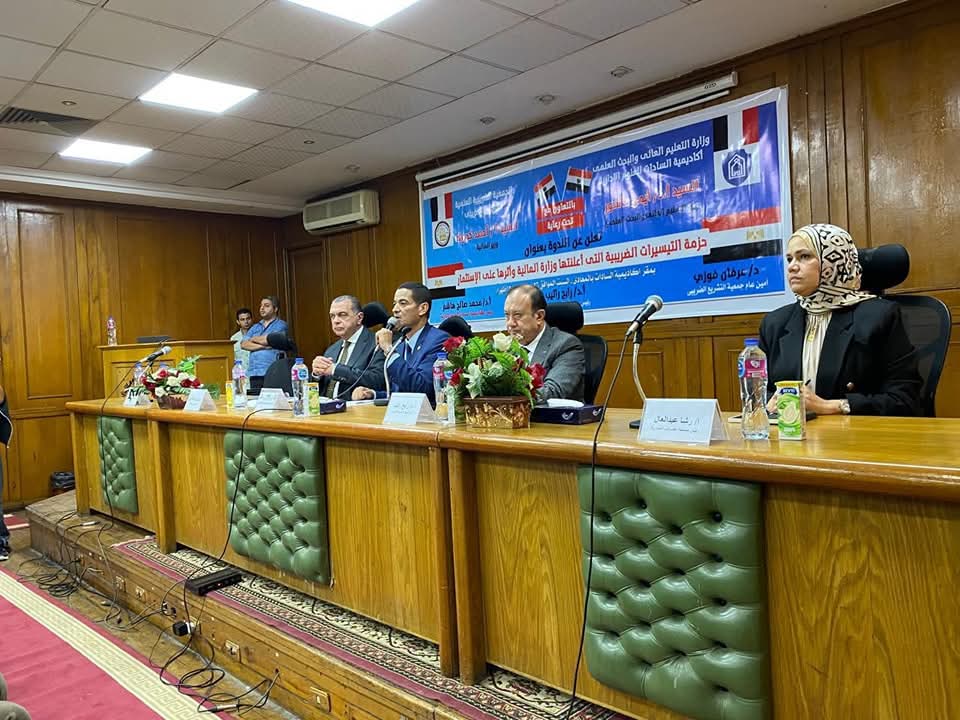Sherif El Kilani, Deputy Minister for Tax Policy at the Ministry of Finance, said that the tax measures announced by the Minister of Finance are the first package and will be followed by many others. He pointed out that the implementation of the first package of tax incentives will require legislative changes, ministerial decisions and decisions by the Prime Minister.
He said the package had three objectives: to “create certainty,” “simplify” and “reduce burden.” This is in line with Egypt’s Vision 2030, which aims to attract investment.
Mr. Elkilani explained that, according to the Finance Minister’s statement, no increase in the tax burden on investors is intended. Rather, the ministry is working to simplify the process. Additionally, the first tax package will include, for the first time, a simplified and integrated tax system to stimulate start-ups, small-scale projects and entrepreneurial activity. This package of facilities is not a replacement for the tax policy document, but rather an amendment, and while it establishes specific facilities for taxpayers dealing with the tax system, the tax policy document provides a vision for the future in line with Egypt’s Vision 2030. Setting.
The first package of tax facilities includes a central clearing system for taxpayers and registrants to make the necessary settlements against their balances according to investor priorities and to generate liquidity for them to carry out their activities; This includes the revitalization of many government agencies in the state. This includes amounts to support exports and debt, with penalties not exceeding 100% of the tax amount for delays.
The Deputy Minister of Finance has announced that taxpayers who fail to file their tax returns on the statutory dates from 2020 to 2023 will be allowed to file their returns within a certain period of time without incurring any legally prescribed penalties. He said that it would be possible.
Mr. Elkilani explained that an advanced electronic portal for taxpayer complaints has also been opened, where they will be addressed immediately.
This was mentioned during the symposium “Tax Facilitation Package Announced by the Ministry of Finance and Its Impact on Investment”, organized by the Sadat Academy of Management Sciences in cooperation with the Association of Tax Legislative Sciences, held at the Sadat Academy headquarters. Ta. Maadi.
Tax Legislation Association President Rabe Lateb said the announcement of the first package of tax incentives had a huge impact not only domestically but also internationally. This confirms that progress is being made in Egypt’s tax system.
Rasha Abdel Aal, Director General of the Egyptian Tax Authority, said that since 2018, the authority has undergone a major digital transformation in its mechanisms for dealing with taxpayers, moving from traditional to electronic systems.
He worked on several axes as the initial 20-point tax accommodations package was being developed, the most important of which was identifying the challenges faced by taxpayers in addressing the tax system and addressing them. He pointed out that the aim was to try to eliminate the problem.
Mr. Abdel Aal said that one of the most important issues facing taxpayers is the lack of tax justice in Egypt due to the existence of a large informal economy. At the same time, the formal economy has to bear all the burden. He underlined the Minister of Finance’s interest in supporting start-ups and entrepreneurial activities by providing incentives, exemptions and facilities across all tax bases.
He explained that one of the key items of the first package of tax facilities is to establish an integrated system for taxpayers whose annual transaction value is up to 15 million Egyptian pounds. Moreover, this system includes a set of incentives, exemptions and facilities that contribute to the clarification of the vision, highlighting the rights and obligations of everyone and their participation in this integrated system based on several axes. We encourage These include exemptions from stamp duty, registration and documentation fees, tax on capital gains on the disposal of fixed assets, dividend tax, as well as exemptions from discounts and prepayment schemes. In addition, this system is based on the treatment of simplified taxation of “categorical or proportional” income tax, which limits the obligation to declare value-added tax to four times a year, and also limits the obligation to submit salaries, etc. Included. Fill out your payroll tax return on your annual financial return.

